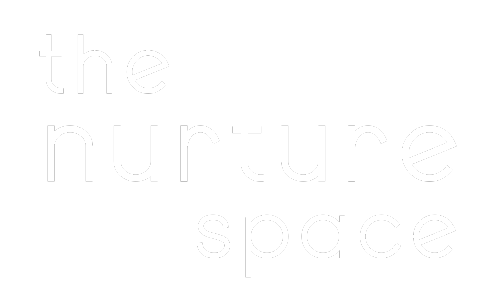The Nurture Space
After Effects Of EMDR Therapy: A Complete Guide
What happens after you’ve taken that brave plunge into EMDR therapy?
It can be a transformative experience.
You may also experience some emotional ups and downs or even some unexpected physical symptoms as your mind processes trauma. Understanding these aftereffects such as feeling spaced out or exhausted, is key to navigating your healing journey.
With The Nurture Space, let’s break it down and get into the nitty-gritty of what’s to come so you can lean into the process with confidence and clarity.
What is EMDR Therapy

Understanding the Process of EMDR
EMDR, or Eye Movement Desensitization and Reprocessing, provides a powerful means of addressing trauma. This psychological treatment reduces the distress around traumatic memories.
Picture yourself in a cozy, welcoming room, your therapist softly navigating your mind. This eight-stage process uses structured protocols and sets of bilateral stimulation, including eye movements, taps, or sounds.
These techniques help your brain reprocess distressing memories so you can get to work facing and figuring them out.
Benefits of EMDR
- Emotional Improvements - EMDR therapy provides profound emotional benefits and increases personal stability while decreasing anxiety.
- Cognitive Enhancements - With EMDR, clarity emerges from the chaos of traumatic memories. Patients often left the sessions with new perspectives that turned destructive thought patterns into adaptive beliefs.
- Physical Reliefs - As the emotional healing journey occurs through EMDR, physical relief often appears without warning.
Side Effects of EMDR
Short-Term Effects
After an EMDR session, it's common to experience intense emotions and mood swings. New memories or feelings may emerge as your mind processes trauma, which can be both enlightening and overwhelming. You might feel tired or restless, indicating your nervous system is recalibrating. Physical symptoms like nausea or headaches may also occur, but these are just responses, not signs of healing.
Long-Term Effects
As they advance in EMDR therapy, many individuals notice lasting improvements in emotional regulation and resilience. These changes can significantly alter their self-perception and identity, fostering healthier relationships and better communication. EMDR equips them with coping skills that enhance their mental health.
Emotional Symptoms After EMDR

Increased Anxiety and Distress
After an EMDR session, you may feel this wave of anxiety crash over you. This hyperstate is a part of your path through trauma processing.
After her first session, I think about this client who felt like a yo-yo. One minute, she felt exalted; the next, she was suddenly low.
It’s essential to experience these feelings instead of bottling them up. Grounding techniques, like deep breathing or mindfulness, can be your lifeline during this time.
If you feel overwhelmed, don’t be afraid to tell your EMDR therapist. They’re there to guide you through these stormy seas.
Intrusive Memories
You might notice that intrusive memories pop up following EMDR therapy. This can feel unsettling, but it’s a vital part of healing.
These memories can help clue you into understanding your trauma on a deeper level. If you have a journal, write them down as they come to you. If you can share these with your therapist, it can unearth some powerful insights.
Remember that experiencing these memories is normal as your brain works hard to reorganise and process what you’ve been through.
Vivid Dreams
You may be accompanied by vivid dreams or nightmares after EMDR sessions. While they can be disconcerting, they usually mean your brain is sorting through things that still need to be worked out.
Looking back at these dreams can be informative; ask your therapist when you see them. These nighttime tales tend to be emotional and may indicate hidden healing progress.
Return of PTSD Symptoms
For some, PTSD symptoms might come roaring back temporarily after EMDR sessions. This doesn’t mean that you’re regressing; it means your brain has been integrating traumatic memories. This is why ongoing support from your therapist is essential during this phase.
Conclusion
EMDR therapy is a guided journey that offers hope and healing. While you may feel unsettled after a session, this is normal as your mind processes experiences. Remember, every hero faces challenges.
If you're considering EMDR, consult a therapist for support. Share your experiences, ask questions, and connect with others. Your story is essential, and you’re not alone. Take that step towards healing—you’ve got this! If symptoms persist, contact us now.
Frequently Asked Questions
Is EMDR suitable for everyone?
While EMDR works for many, it's not suitable for everyone. If you have severe dissociation or unstable mental health issues, consult your therapist. They can help determine if this is appropriate for you.
Can EMDR therapy worsen my symptoms?
In rare cases, people experience increased emotions or anxiety soon after EMDR sessions. This can be a regular part of healing. Sharing these feelings with your therapist can help you manage and let go of worries.
Are there any risks associated with EMDR therapy?
EMDR is regarded as a safe practice; some patients may experience temporary emotional distress or discomfort during sessions. Working with a trained therapist is essential if you decide to go that route.
What should I expect after an EMDR session?
Session experiences differ. Some people feel tired or emotionally drained; others feel clarity or relief. You must rest and reflect on your feelings and what you’ve learned from the session.
How long do the side effects of EMDR last?
Side effects from EMDR can be different from person to person. Emotional and physical symptoms can last a few days to weeks after treatment. Many individuals report significant relief over time as they process their experiences.



